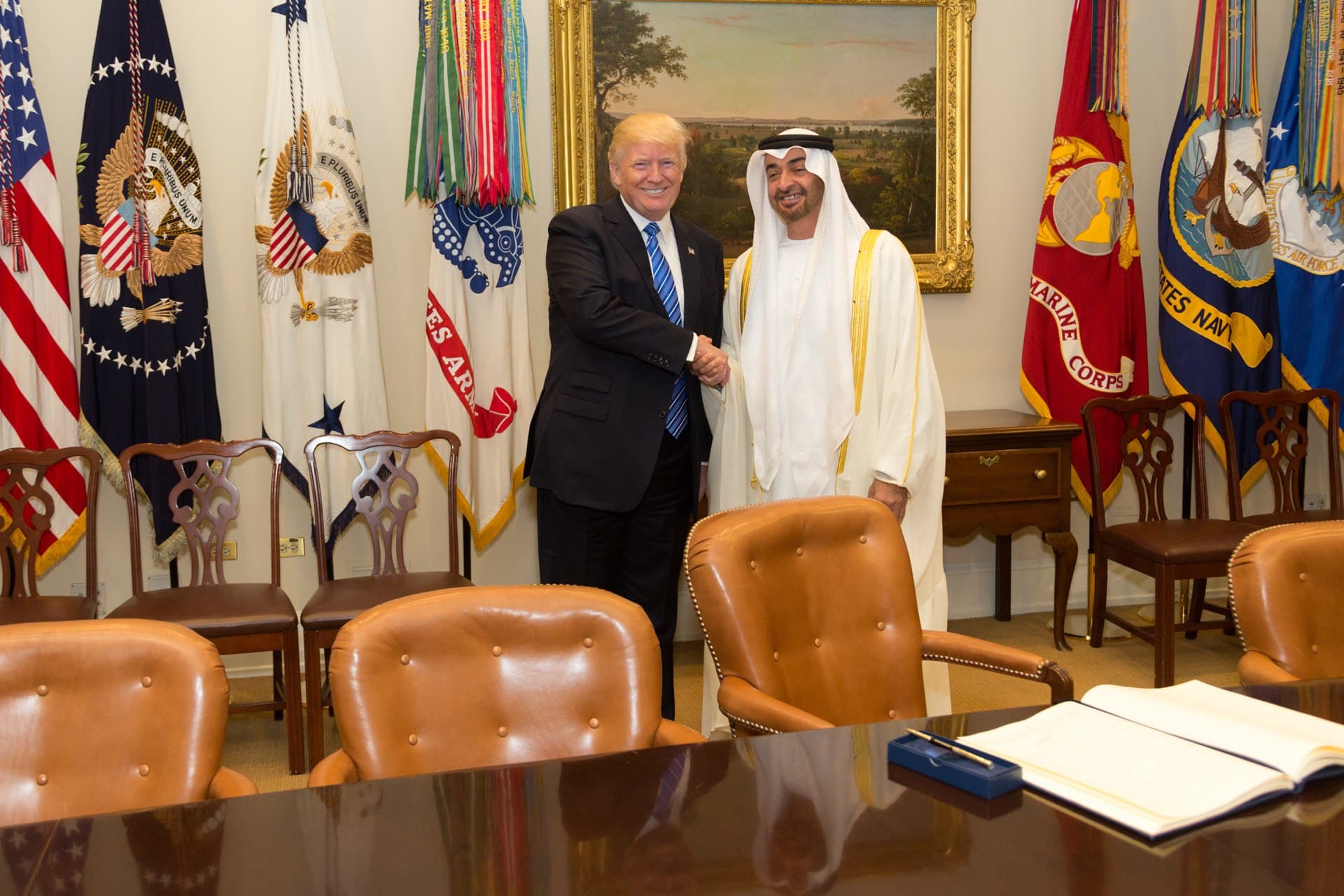On the 13th of August, Israel and the United Arab Emirates (UAE) reached a peace deal under the auspices of the United States. Israel announced it would suspend further West Bank annexation plans in exchange for the normalisation of ties with the UAE. Delegations representing the countries involved will meet in the coming weeks to sign bilateral agreements on tourism, direct flights, security, investment and the establishment of reciprocal embassies. It is expected that the peace accord will be signed in September in the White House. If that proceeds as planned, the UAE will be the third Arab country to formally normalise its relationship with Israel, after Egypt did so in 1979 and Jordan in 1994.
Israel-United Arab Emirates peace agreement
Back in January this year, Trump announced his vision for peace officially known as Peace for Prosperity. Trump’s administration made clear that if Israel wants to annex 30% of the West Bank, it would have to hand the Palestinians 6.5% of Area C (the 60% of the West Bank under complete Israeli control). Netanyahu offered to give up only 0.5% which was rejected by the Americans. The Israeli Prime Minister Benjamin Netanyahu refused to commit publicly to implementation of Trump’s “deal of the century” for Israeli-Palestinian peace, which also entails the eventual establishment of a Palestinian state of sorts. Taking into account that the first plan was unlikely to happen, it was time for a different strategy.
Trump and Netanyahu face (early) elections – both are running out of time to cement their legacies. Netanyahu is facing a corruption trial hanging, and Trump’s legal troubles are likely coming too. Therefore both are going to present this deal as a success story during pre-election campaigns.
Furthermore, Israel pledged to suspend the annexation plan. When asked about this part of the deal, White House senior adviser and Trump’s son in law, Jared Kushner, said: “I believe Israel will not take action to move forward unless we have an understanding between America and Israel that it’s the right action at the right time.” Netanyahu also said that he received a request to wait temporarily with annexation from President Trump, emphasising that it is not removed from the table.
Regarding UAE, it has undoubtedly diplomatically upstaged its more significant regional partner Saudi Arabia and gained leverage over regional security, while maintaining some independence of Trump’s policies on Iran. Iranian businesses have a substantial presence in the UAE, and two countries maintain diplomatic relations, having embassies in each other’s capitals.
The Palestinian side of the story
Abu Dhabi’s Crown Prince Mohammed Bin Zayed said the agreement “was reached to stop further Israeli annexation”, however, Palestinian officials see it as a betrayal against Jerusalem, Al-Aqsa (mosque, Islam’s third-holiest shrine) and the Palestinian cause.
Former Palestinian Authority minister Munib al-Masri said “The format of the agreement implicitly approves of Israel’s annexation of Jerusalem. It only opposes further annexation while approving what’s been annexed already.” adding that annexation was already going nowhere because the whole world was standing against it.
“This is a betrayal of the Palestinian people,” said Hasan Faraj, a Palestinian activist and secretary-general of the Fatah movement in the West Bank. “We expected this kind of thing from enemies of the Palestinian cause, but not from another Arab country like the UAE.”
Palestinian officials also said the deal was made to help re-election of Trump and Israeli Prime Minister since both officials are desperately keen to flaunt success stories.
Mixed international reactions: from appreciation to suspending diplomatic ties
The UAE is the first Gulf Arab state to establish normalised relations with Israel, Iran’s regional archenemy.
The Iranian Foreign Ministry Mohammad Javad Zarif has called the UAE move strategic folly. The statement in Tehran said, “the oppressed nation of Palestine and other freedom-seeking people across the world will never forgive normalisation of the ties with the Israeli regime.”
Iranian President Hassan Rouhani has also condemned the Emirati move. In a televised speech, he warned that the United Arab Emirates had made a “huge mistake” in reaching a deal toward normalising ties with Israel and urged the Gulf states against allowing Israel to have a “foothold in the region.”
A group of around 100 protestors gathered in front of the UAE embassy to express their dissatisfaction, yelling “death to Israel” and “death to America” and burning an Israeli flag.
President Tayyip Erdogan said that Turkey is considering suspending diplomatic ties with the UAE and withdrawing its ambassador over the Gulf state’s accord to normalise relations with Israel.
Jordan said that the peace accord could bring stability to the region only if it serves as an incentive to end the Israeli occupation and accept a Palestinian state. Otherwise, it could only deepen Arab-Israeli conflict.
Morocco and Saudi Arabia did not issue any official statement regarding the UAE-Israel deal. Even though there was no official statement from the Saudis, Twitter users shared pictures of the late King Faisal, who during the October 1973 Arab-Israeli war led an oil embargo that aimed to punish the United States and other countries for their support of Israel. In this online campaign users quoted Faisal: “If all Arabs agreed to accept the existence of Israel and to divide Palestine, we would never join them.”
Egyptian President Abdel Fattah al-Sisi welcomed a deal. “I followed with interest and appreciation the joint statement between the United States, United Arab Emirates and Israel to halt the Israeli annexation of Palestinian lands and to take steps to bring peace in the Middle East,” said Sisi on Tweeter.
Regarding Europe’s reaction, British and French Foreign Ministers said that the agreement is an opportunity for resuming the dialogue between Israelis and Palestinians. France and Germany voiced similar sentiments saying that the peace deal keeps hopes up for a two-state solution. European Commission stated that the agreement is vital for stability in the region. However, Luxembourg’s Foreign Minister Jean Asselborn, in contrast, doubted that the deal would bring stability to the region, and stated that the UAE had let the Palestinians down.
Sources: Reuters 1, Reuters 2, Reuters 3, Al Jazeera, Al-Monitor, CNN, AP News, Morocco World News, Jordan Times
Photo: Wikipedia



